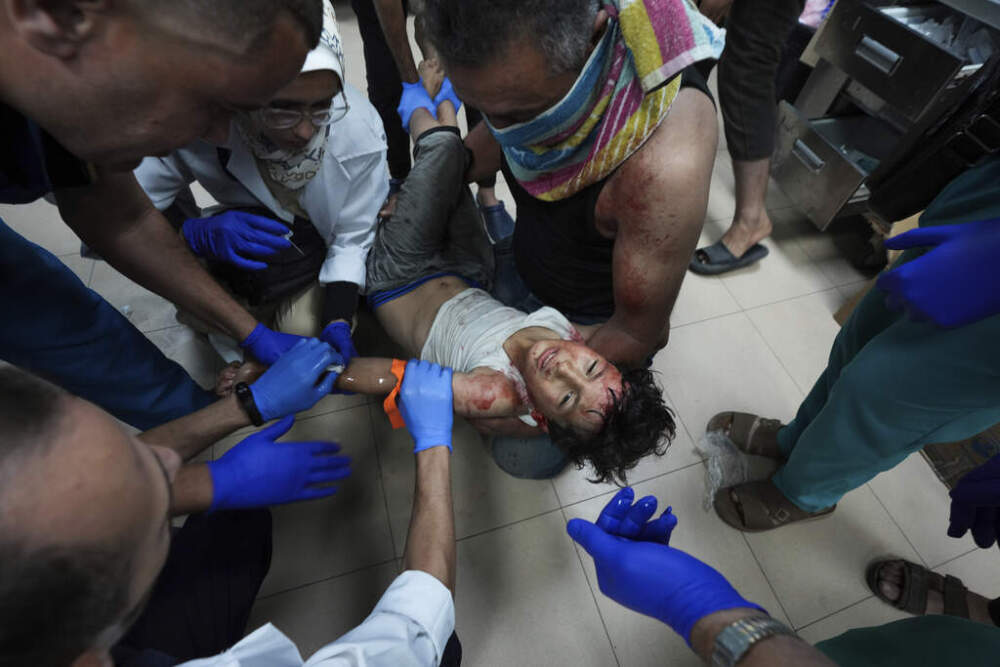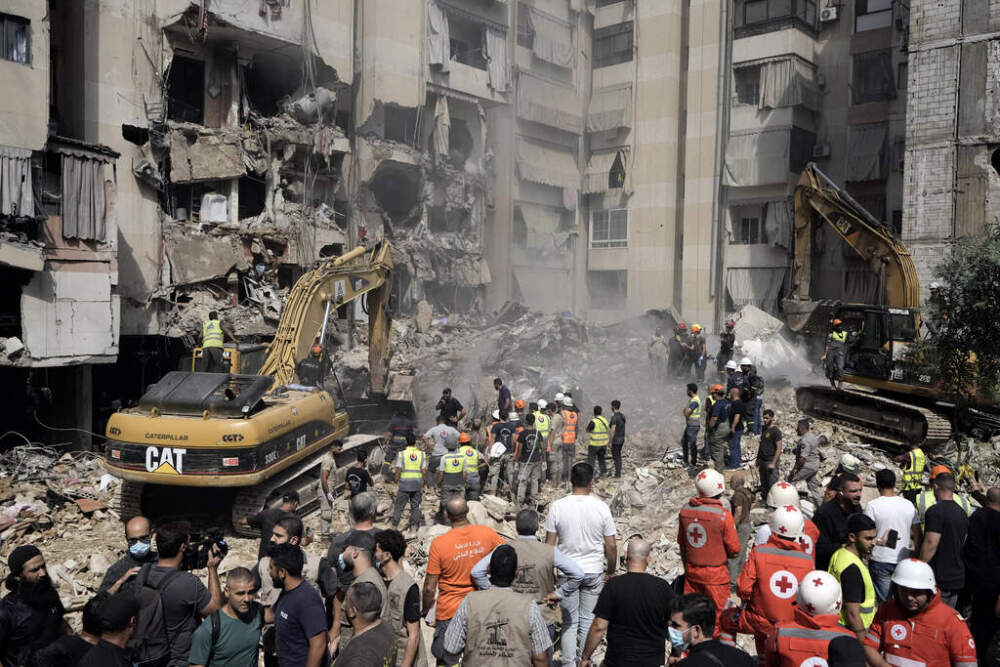Advertisement
Commentary
Do not numb yourself to the suffering in Gaza

Despite my years of humanitarian work and my time as the leader of Oxfam America, the pain that persists in this humanitarian crisis has been unimagineable. I cannot adequately fathom the fear, danger and desperation Palestinians have experienced under Israel's bombardment, nor the agony of the Israeli families whose loved ones who were taken hostage or killed by Hamas and other armed groups over this past year.
By the end of last year, I’d hit a wall. The Israeli military’s attacks on medical centers, obstruction of aid and forced displacement of nearly 2 million people. The terrible toll of October 7 and the uncertain fate of Israeli hostages. But still, I wrote that my Jewish value of tikkun olam — repairing the world — guided my hope for a future of security, peace and dignity for all Palestinians and Israelis.
A year later, I am finding hope hard to come by.
I struggle to answer my own children’s questions about why Israel’s government would act with such cruelty toward Palestinians and such disregard for Israeli hostages. I continue to be outraged and deeply sad, holding the common humanity of the Palestinian and Israeli people in my heart.
More than 41,000 Palestinians have been killed by the Israeli siege and bombardment. Nearly 100 Israelis are still held hostage by Hamas. Palestinians still find themselves struggling to survive and to maintain the attention and empathy of people worldwide who don’t see a way forward.
I have asked my Palestinian colleagues how they feel, and they have told me: ignored and left behind. After more than a decade of an Israeli blockade, and one year of bombardment, they wonder: Does anyone see us anymore? Does anyone care? The world has let itself become numb to their suffering and to disregard their humanity. But it simply does not have to be this way.

After the attacks of October 7, Israel’s leadership chose a path of collective punishment for Palestinians in Gaza instead of pursuing a future that could have protected both Palestinian civilians and Israeli hostages. Its military campaign has displaced 2 million Palestinians, who are continually forced to flee so-called humanitarian zones that are anything but safe, as Israeli bombs fall on schools, shelters and medical facilities.
Aid workers are being killed in record numbers. As of August, less aid was entering Gaza than at any time since November 2023. The little aid that does enter is nearly impossible to safely distribute due to Israeli impediments.
Meanwhile, in the West Bank, Israeli settlers and soldiers have increasingly attacked Palestinian communities, killing and forcibly displacing many.
Israel’s bombardment has created a wasteland inhospitable to human life in Gaza. Starvation and water deprivation have been used as weapons of war. An estimated 50,000 children will require treatment for malnutrition by the end of the year. People in Gaza have fewer than five liters of water per day for all their needs — drinking, washing, cleaning, cooking and more. Every wastewater treatment plant in Gaza has been destroyed and more than a quarter of Gaza’s population has fallen severely ill from preventable, water-borne diseases. It’s no wonder that illnesses that have nearly been relegated to the dustbin of history, like polio, are endangering the children of Gaza. It should not be this way.
Advertisement
I struggle to answer my own children’s questions about why Israel’s government would act with such cruelty toward Palestinians and such disregard for Israeli hostages.
The government of Israel is obligated to protect its people from the kind of attacks that it suffered one year ago on October 7. It must bring its hostages home safely and ensure the safety of its people. But with full control over Gaza’s land routes and airspace, it is also obliged to protect Palestinian civilians.
Israeli leaders seem to believe that the security and freedom of Palestinians and Israelis are at odds with one another, when in fact they are deeply interconnected. A quote, attributed to Mahatma Ghandi, goes “an eye for an eye makes everyone blind,” and inflicting more violence will only deepen the trauma for generations to come. The best way Israel can protect its people is to stop its siege, obstruction of aid and unrestrained bombardment, and end the occupation. The Israeli government must listen to its citizens, who have been taking to the streets in protest, calling for an end to the conflict and the safe return of hostages. Most of all, Israel must embrace a ceasefire and a future of Palestinian self-determination.
As long as a ceasefire and hostage deal remain out of reach, we must do all we can to ensure that Palestinian civilians in Gaza and the remaining hostages are given a chance to survive. In the U.S., that means leveraging our relationship with the Israeli government to push for peace. The Biden administration has wasted time on performative workarounds — air drops that themselves killed civilians, a floating pier that fell apart in the sea — rather than acknowledging Israel’s role in obstructing aid and doing something about it.

The Biden administration must publicly admit that Israel is violating international law, and then stop lethal arms sales to Israel as U.S. law requires. This country’s relationship with Israel makes it uniquely positioned to influence Israel’s approach, and as Israeli airstrikes intensify in Lebanon, killing more than 1,000 civilians and placing millions in harm’s way, we must take every opportunity to do so.
One year on, the demands of Oxfam and our partners remain the same, but are only more urgent. We need a full and permanent ceasefire now, the safe return of all Israeli hostages and illegally detained Palestinians, an end to Israel’s siege of Gaza, and a stop to lethal arms sales to Israel.
It is difficult for me to maintain any sense of optimism or vision of a peaceful future, when we have been repeating these calls, month after month, to no avail. I am angry and heartbroken. But I hope we can use this moment to mourn lives lost in Israel, across Gaza and the West Bank, and in Lebanon, and to fervently renew our push for peace and an end to the occupation.
Let us turn our anger into hope, and our hope into action.
